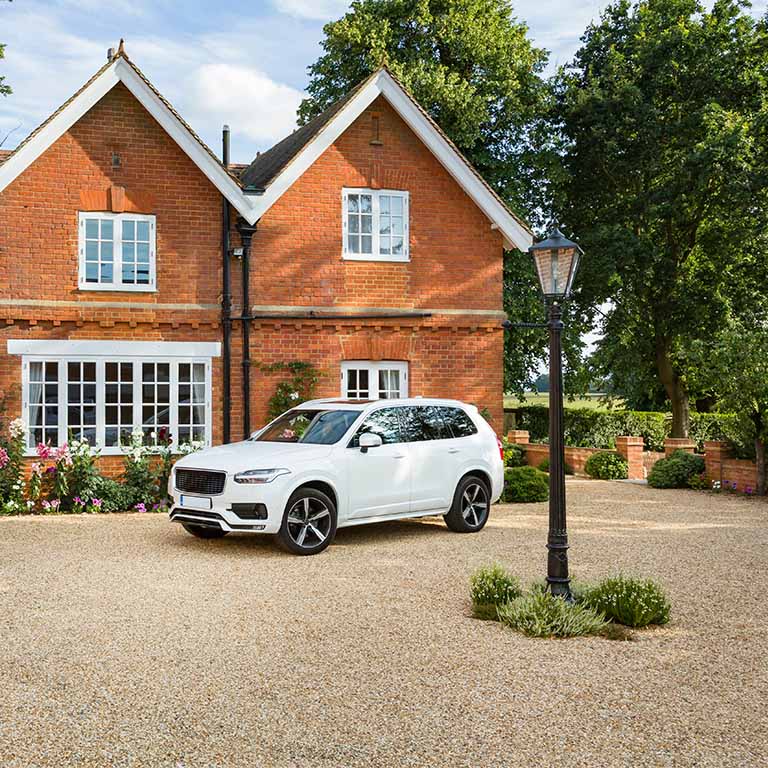
Representative Example: You could borrow £10,699 over 60 months with an initial payment of £495.89 (including £199 Admin Fee) followed by 58 monthly payments of £296.89 with a final payment of £495.89 (including optional £199 Option to Purchase Fee). Total amount repayable will be £19,012,40. 26.1% APR, annual interest rate (fixed) 13.3%.
The Admin Fee is a £199 fee that helps cover the costs of setting up your finance agreement. It covers things like preparing your agreement documents, carrying out credit and identity checks, and arranging payment to the broker. This fee is paid at the same time as your first payment, and it isn't refundable. It's separate from your deposit and from any other charges on your agreement.
The Optional Purchase Fee is a £199 fee you only pay if you decide to buy the car at the end of your finance agreement. You don't have to buy the car, that's entirely your choice. If you choose to hand the car back instead, you won't pay this fee. If you decide to keep the car, you'll need to pay the £199 Optional Purchase Fee, usually along with your final payment, to transfer legal ownership of the vehicle to you. This fee covers the cost of finalising your agreement and removing our interest in the vehicle. It's separate from your deposit and from any other charges on your agreement.
The amount shown is an illustration of a typical monthly payment based on the Representative APR. These figures are for guidance only; the actual payments and rate you're offered will depend on your individual circumstances and are not guaranteed. Please see below for details of how your first and final payments may be different.
Hire Purchase vs Personal Contract Hire: What You Need to Know
When you want a car but don’t have the money to buy it outright, two common options are hire purchase car finance and personal contract hire. Both let you spread the cost over time, making it easier to afford a car. However, they work very differently when it comes to ownership, flexibility, and long-term value. Understanding these differences can help you choose the option that suits your needs best.
Hire purchase is a type of car finance where you spread the cost of a car over fixed monthly payments. You usually pay a deposit (but some lenders offer zero deposit car finance options), then make monthly payments over a set term, often between 2 to 5 years.
Once you make the final payment (including a small "option to purchase" fee), you own the car outright. This option is popular for people who want to own their car at the end and prefer clear repayment terms with no mileage limits.
HP finance is available for new and used cars and can be a good option if you're buying a second-hand car. Some lenders even specialise in HP car finance for bad credit customers, depending on affordability.
Personal contract hire (PCH) is also known as car leasing. You pay fixed monthly amounts to use a car for a set period, usually 2 to 4 years. However, you never own the car, you simply return it when your lease ends.
PCH often comes with lower monthly payments compared to HP, but there are strict rules, such as mileage limits and vehicle condition standards. If you drive a lot or may damage the car, PCH might not be the right choice.
It’s a good option for people who like changing cars regularly and don’t want the hassle of selling a car or dealing with depreciation.
If owning the car matters to you, hire purchase is usually the better choice. With HP, you make fixed monthly payments until the agreement ends. Once you've made the final payment, including a small "option to purchase" fee, you legally own the car. From that point, you're free to do whatever you want with it: keep it for years to come, sell it privately, or part-exchange it for a new one.
With personal contract hire (PCH), you never own the vehicle. You're essentially renting it for a set time, usually between two and four years. When the lease ends, you simply give the car back. There’s no option to buy it, and you won’t get any money back. Because you don’t build any equity, all the payments you’ve made go towards the use of the car, not ownership.
If you know you want to keep the car long term, HP makes more financial sense in the end. On the other hand, if you only need a car for a short period or you enjoy driving a newer car every few years, PCH might suit you better. It all depends on whether you’re looking for ownership or flexibility.
HP payments are usually higher than PCH because you're paying off the full cost of the car. But the benefit is that, in the end, you own the car. HP also gives you more freedom, no mileage limits and more control over how you use or maintain the car.
PCH often has lower monthly payments, but you’re limited in how far you can drive, how you maintain the car, and you’ll never own it. You may also be charged for damage or excess mileage when you return the vehicle.
If flexibility is important to you, especially for high mileage or customisation, HP is the more flexible choice.
It’s usually easier to get HP car finance with bad credit than it is to get approved for a PCH lease. Many HP lenders specialise in helping people with poor credit or a low credit score, as long as the monthly payments are affordable.
PCH, on the other hand, often requires a higher credit score. Lease providers want to see that you’re low risk, especially since they retain ownership of the vehicle.
If you’re unsure what your credit history looks like, check your score first and speak to a lender or broker who can match you with the right product.
Both hire purchase (HP) and personal contract hire (PCH) offer ways to get a car without paying the full price upfront. But the right option depends on your budget, how long you want the car, and whether ownership matters to you. Below, we’ve broken down the key pros and cons of each to help you decide which is a better fit for your needs.
Hire purchase pros:
Hire purchase cons:
Personal contract hire pros:
Personal contract hire cons:
Think about what matters most to you when choosing between HP and PCH. If your goal is to own the car, have long-term value, and the freedom to keep, sell, or trade it in later, HP is usually the better option. It can also be more accessible if you're buying a second-hand car, working with a tighter budget, or have a lower credit score.
On the other hand, if you’re mainly focused on keeping monthly costs low, don’t drive huge distances, and enjoy changing your car every few years, PCH might suit you better. Just be sure you're comfortable with not owning the car, sticking to mileage limits, and returning it in good condition at the end of the lease.

